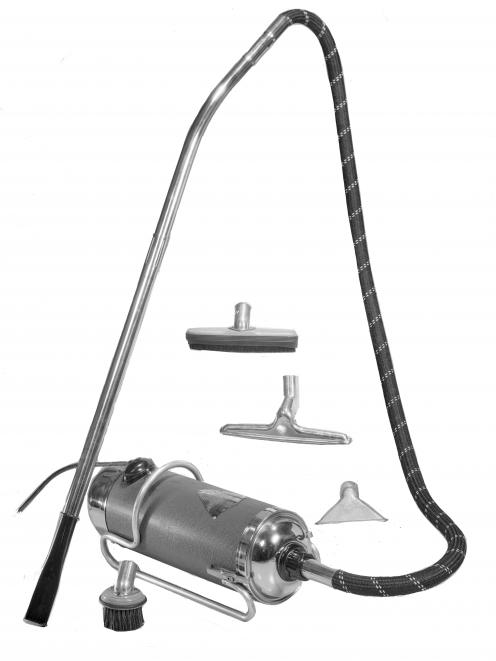Lifestyle
Oxford English Dictionary Finally Recognizes “Luxing” After Century

The Oxford English Dictionary has officially included the term “luxing” in its latest round of updates, acknowledging a word that has been part of New Zealand vernacular for decades. The addition has sparked discussions about how language evolves and the role of brand names in shaping everyday speech.
Historical Context of “Luxing”
The term “luxing,” derived from the brand name Electrolux, has its roots in New Zealand’s domestic history, particularly in relation to vacuum cleaning. The Electrolux vacuum cleaner made its debut in New Zealand exactly 100 years ago, when Christchurch entrepreneur Lancelot Shutte began promoting it in 1923. He famously arranged demonstrations for potential buyers at their homes, showcasing the product’s compact design and efficiency compared to larger models available at the time.
This marketing strategy included a dedicated booth at the Dunedin Exhibition, which featured a “ladies’ lounge” equipped with a telephone, writing desk, and even a gramophone for entertainment. An advertorial from the time highlighted how women enjoyed tea while learning about the new “labour-saving electric cleaner,” which undoubtedly contributed to its popularity.
The Evolution of Slang and Brand Names
Over time, the term “luxing” evolved from a specific brand name to a generic term for vacuum cleaning, especially in the South Island of New Zealand. This phenomenon of brand names becoming synonymous with the actions they represent is not uncommon. Harry Orsman, a prominent figure in the study of New Zealand English, traces the use of “luxing” back to 1980, when it appeared in Roger Hall’s play “Prisoners of Mother England.” Hall’s work captured the essence of local slang, further embedding the term into the fabric of New Zealand culture.
Orsman’s research indicates that “luxing” was likely in use even earlier, as many New Zealanders recall hearing the term from domestic staff throughout the 1950s. The phrase “get your muddy feet out of there, I’ve just luxed the floor!” became a common household admonition, illustrating the term’s entrenched place in everyday language.
The Oxford English Dictionary’s decision to include “luxing” has been met with approval by those who appreciate the richness of New Zealand’s linguistic heritage. It underscores how language can reflect cultural identity, with “luxing” serving as a distinctly Kiwi term that contrasts with the more commonly used “hoovering” in other English-speaking regions.
In a broader context, the journey of “luxing” highlights how brands strive for recognition in everyday language. The phenomenon can be observed in various industries, where companies aim for their products to become synonymous with their function. For example, during World War II, Lever Brothers attempted to promote their Lux soap powder by suggesting it would prolong the life of women’s stockings, cleverly using advertising to create a new linguistic trend.
As the Oxford English Dictionary recognizes “luxing,” it not only acknowledges a significant aspect of New Zealand culture but also reflects the ongoing evolution of language. The inclusion of such terms in reputable dictionaries serves as a reminder of how words carry stories, connecting generations and communities through shared experiences.
-

 World4 months ago
World4 months agoTest Your Knowledge: Take the Herald’s Afternoon Quiz Today
-

 Sports4 months ago
Sports4 months agoPM Faces Backlash from Fans During Netball Trophy Ceremony
-

 Lifestyle4 months ago
Lifestyle4 months agoDunedin Designers Win Top Award at Hokonui Fashion Event
-

 Entertainment4 months ago
Entertainment4 months agoExperience the Excitement of ‘Chief of War’ in Oʻahu
-

 Sports4 months ago
Sports4 months agoLiam Lawson Launches New Era for Racing Bulls with Strong Start
-

 World5 months ago
World5 months agoCoalition Forms to Preserve Māori Wards in Hawke’s Bay
-

 Health4 months ago
Health4 months agoWalking Faster Offers Major Health Benefits for Older Adults
-

 Lifestyle4 months ago
Lifestyle4 months agoDisney Fan Reveals Dress Code Tips for Park Visitors
-

 Politics4 months ago
Politics4 months agoScots Rally with Humor and Music to Protest Trump’s Visit
-

 Top Stories5 months ago
Top Stories5 months agoUK and India Finalize Trade Deal to Boost Economic Ties
-

 Health2 months ago
Health2 months agoRadio Host Jay-Jay Feeney’s Partner Secures Visa to Stay in NZ
-

 World5 months ago
World5 months agoHuntly Begins Water Pipe Flushing to Resolve Brown Water Issue









